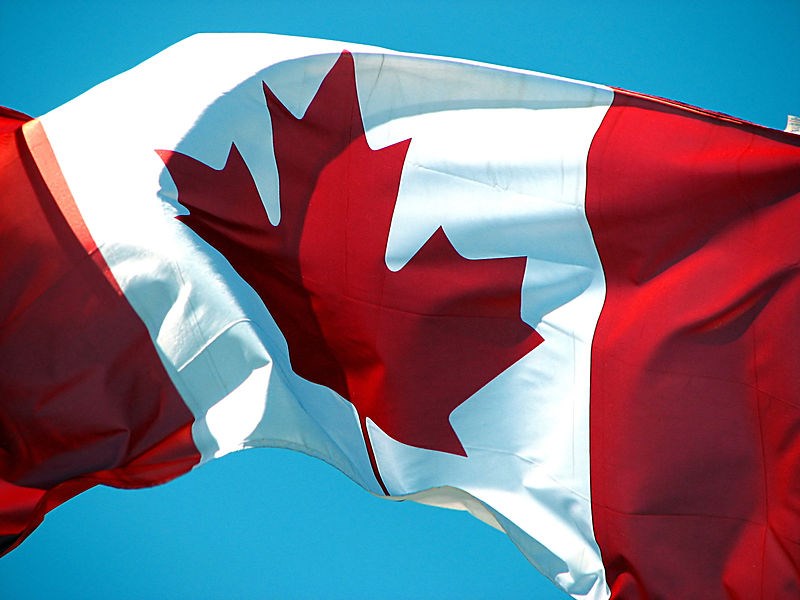Canada Day in Guelph is a big party – a slightly bigger party every year. It happens all day and all night on Saturday in Riverside Park.
This year’s event includes a citizenship ceremony, a contingent of youth ambassadors from Nova Scotia, a petting zoo, a duck race, a chess tournament, and, of course, fireworks.
Terrie Jarvis is an organizer of this year’s event in Guelph, which, as usual, is sponsored by Rotary Club of Guelph. She said the annual celebration is a massive task to organize, and without a strong team of dedicated volunteers it could not happen.
Canada Day, she said, is a party, a celebration, and commemoration all wrapped up in one event – an occasion in which to celebrate what it means to be a Canadian, and to share in the joy and diversity of our local community.
The local Rotary event started as a picnic in the park 25 years ago, she said.
“It is growing bigger and better each year,” Jarvis said, adding there will be 60 vendor tents this year, and a jam-packed program.
The celebration is a community service event for Rotary, raising between $15,000 and $30,000 each year for social programs. There is no formal admission fee, but donations are collected at the gates.
The opening ceremony starts at 10:40 a.m. Saturday, immediately followed by a host of bands on the main stage. The citizenship ceremony is a 4:30 p.m. There are more bands in the evening, including the Royal City Big Band. The fireworks blast off at 10 p.m.
Woven into the day at assorted venues you can find bingo, duck races, more music, bouncy castles, food and more food, and dozens of local crafts and vendors.
Canada Day tends to be a lot more than a party, especially the version of the celebration held in Ottawa, according to a University of Guelph history professor who is an expert on the subject.
Historian Matthew Hayday says Canada Day is also a time when the federal government, and even local organizers, inject careful messaging into the event. It’s a way of promoting a vision of Canada, and influencing public opinion on future directions.
Hayday has written a lot about Canada Day and its significance. It was the extraordinary Canada Day celebration in Ottawa back in 1998 that got Hayday interested in studying the significance of the event. People just really got into the spirit, and he was impressed.
He said in a telephone interview that the national holiday is used by the federal government to impart messages, often subtle ones, about Canadian identity, and to drum up support for certain policies. While all eyes are watching, such opportunities are not to be missed.
Formerly known as Dominion Day, the name was officially changed to Canada Day in 1982. Hayday said that in the 1970s the feds began providing seed funding to communities across the country to help them celebrate July 1, as a way to build national unity during the rise of Quebec separatism.
Over the years the occasion has offered insights into what the government of the day and politicians in general envision the future to be, and how they interpret the past, he indicated.
“One of the most obvious ways is in who gets invited to perform,” he said. “If you look at the Ottawa celebrations, are you seeing a mix of English and French language performers? Are the French performers just from Quebec, or are they from New Brunswick and Saskatchewan, showing a Pan-Canadian approach to bilingualism?”
The inclusion of different multicultural groups fosters an inclusive narrative, and the incorporation of Indigenous groups speaks of another kind of vision.
“The way in which First Nations or Indigenous Peoples play a role in these events has shifted quite dramatically over the course of the decades,” he said.
“It’s trying to use celebrations as a way to guide Canadians to think in different ways about communities,” he added. “It’s often about governments having an idea of what type of nation they want to foster, what types of policies they want to support.
Messages are seed in the hope they will start “percolating among the Canadian population, so that hopefully they’ll internalize those messages about the country and be more likely to support a different or changing vision,” he said.
In a community like Guelph, the party element is very important. But also listen carefully to the speeches, if there are any, he suggested. They might hold significant messages about a vision of Canada, and Guelph’s place in it.
